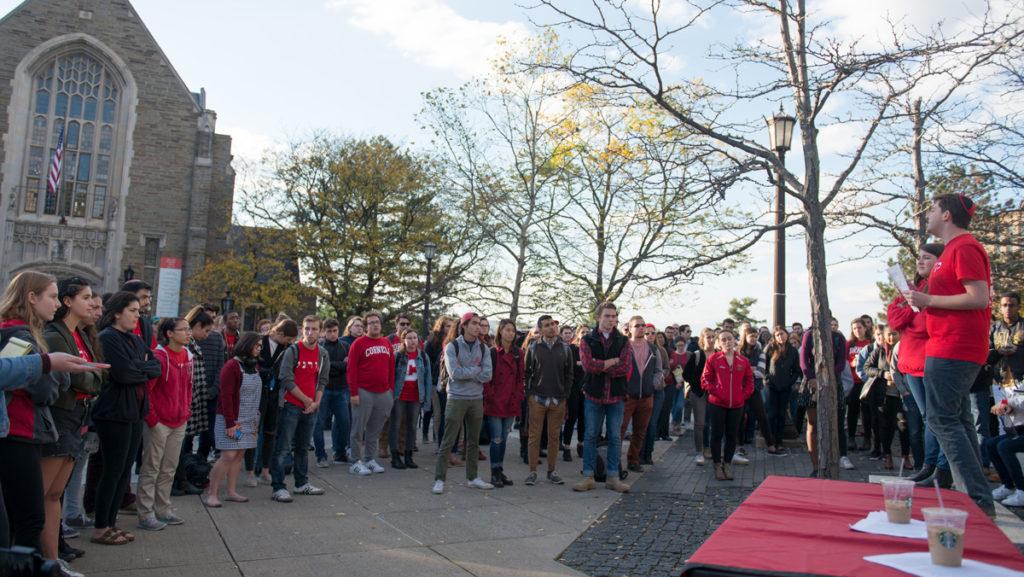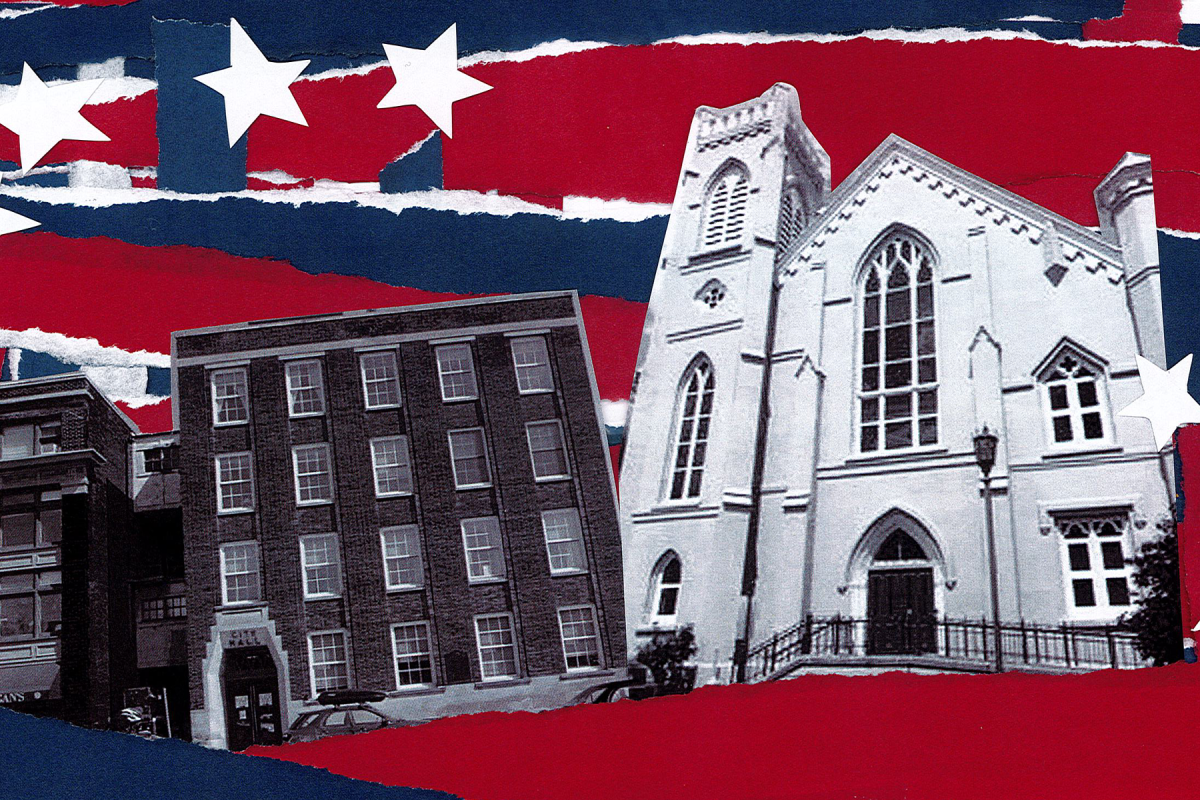In response to anti-Semitic posters that were hung up in Collegetown and discovered on the morning of Oct. 23, around 100 Cornell University faculty, staff and students gathered at a rally against white supremacy led by Cornell Hillel on Oct. 25 at Ho Plaza.
The posters were hung up in Collegetown some time between the evening of Oct. 22 and the following morning. They were found on the Ezra Cornell Statue and buildings on campus. The posters were attributed to the Solar Cross Society, an organization not officially affiliated with the campus that has no online presence. The posters read, “Just Say No to Jewish Lies!” and, “Join the White Gang!” and depicted the typical anti-Zionist symbol of a snake wrapping around the Earth. These phrases and symbols upset many students, which led to the Jewish community of Cornell, along with its fellow minority communities and allies, assembling a protest.
The rally was planned and led by Cornell’s Hillel student leaders, who addressed the crowd of approximately 100 people. Some spoke of personal anecdotes about their struggles with oppression, and others shared quotes or poems from famed activists. The event was intended as an opportunity to lend support in the face of white supremacy to communities on Cornell’s campus, expanding beyond just the Jewish community.
Rabbi Ari Weiss, executive director of Cornell’s Hillel organization, said the student leaders made the decision to protest when they saw the negative effect the posters had on the campus and knew that they needed to respond in a public way.
“I hope that it’s a way of not erasing what happened, but building on it, and saying that this is a campus that’s dedicated to community … and this is a campus where, frankly, no student … should feel that they are marginalized,” Weiss said.
Lauren Goldberg, executive director of Ithaca College Hillel, said the college’s Jewish community is also deeply troubled and saddened by the events that occurred at Cornell. In support of the rally, Ithaca College Hillel offered rides and bus passes to Ithaca students who wished to attend.
The rally began with speeches from Hillel student leaders. The first to address the crowd was senior Brandon Cohen, who opened with the message that the fight for equality on Cornell’s campus did not start or end with anti-Semitism, but extended to other minorities as well.
“All forms of hate and bigotry have no place in our campus, in our country, or in the world,” Cohen said. “The same destructive impulses that perpetuate anti-Semitism also beget other forms of hate, such as xenophobia, Islamophobia, homophobia, racism and other damaging and hurtful expressions.”
To show her support and allyship, senior Natalie Brown, president of the Cornell Democrats, recited Maya Angelou’s poem “And Still I Rise” and gave a brief speech about its relevance to the difficulties that Cornell’s minority communities are currently facing.
At the end of the rally, students started chanting, “No hate! No fear! Everyone is welcome here!” Students who attended were also invited to come to the front of the crowd and share anything they thought was relevant. Sophomore Lilah Rosenfield provided the crowd with insight on what it is like being a queer Jewish woman facing oppression. She spoke out about what Cornell as a community must do in the face of blatant white supremacy.
“It was so clear that this is … anti-Semitism and white supremacy in its most radical and ideological form,” she said. “I got scared for myself. I got scared for my family. I got scared for my friends in the Jewish community here. I knew I had to do something, and I knew I had to take care of myself.”
In response to the anti-Semitic posters spread around campus, 70 organizations from Cornell contacted the Hillel community, offering their help, Weiss said. The attendees came from organizations around the Cornell community.
Senior Danielle Eiger, executive vice president of Cornell Hillel, said that in the light of these anti-Semitic acts, they hope to increase community awareness for the Jewish communities at Cornell.
“We see it not as an ending point, but as a starting point for building relationships across campus,” Eiger said. “We’re really, really fortunate to get the support of 70 campus organizations … and we can’t say how much we appreciate that.”








